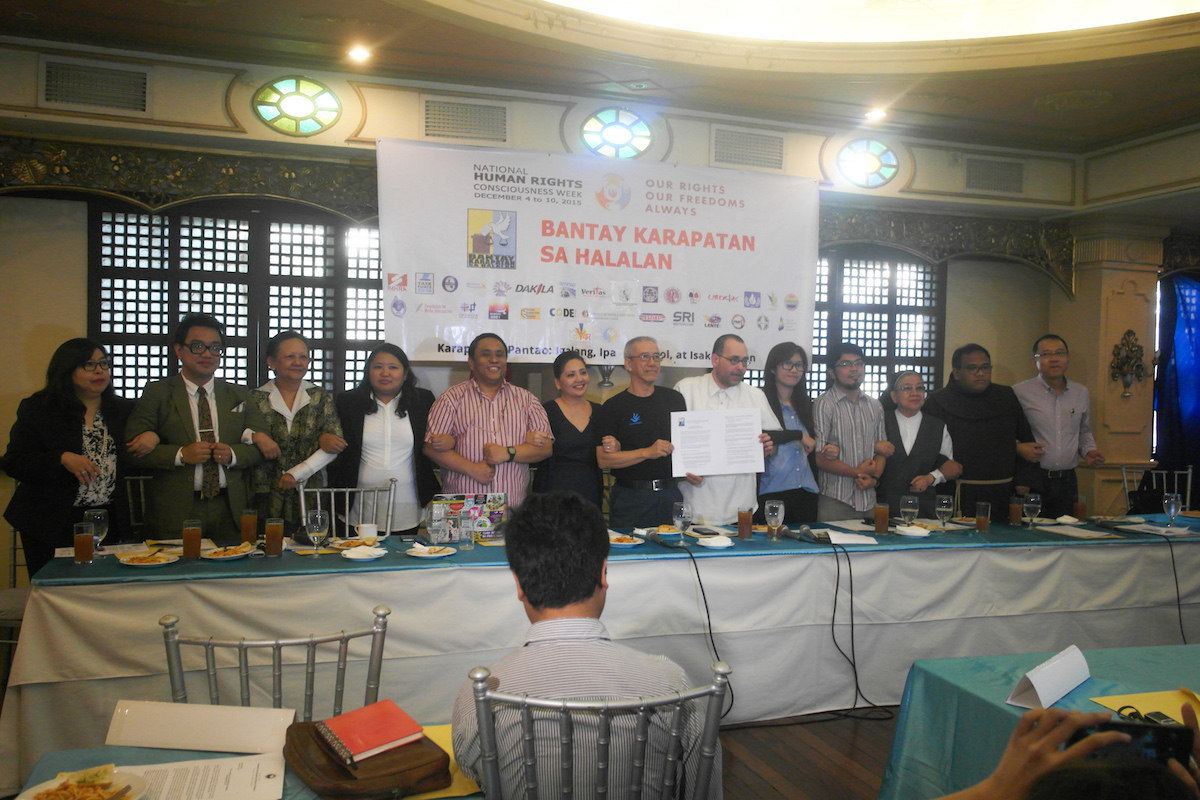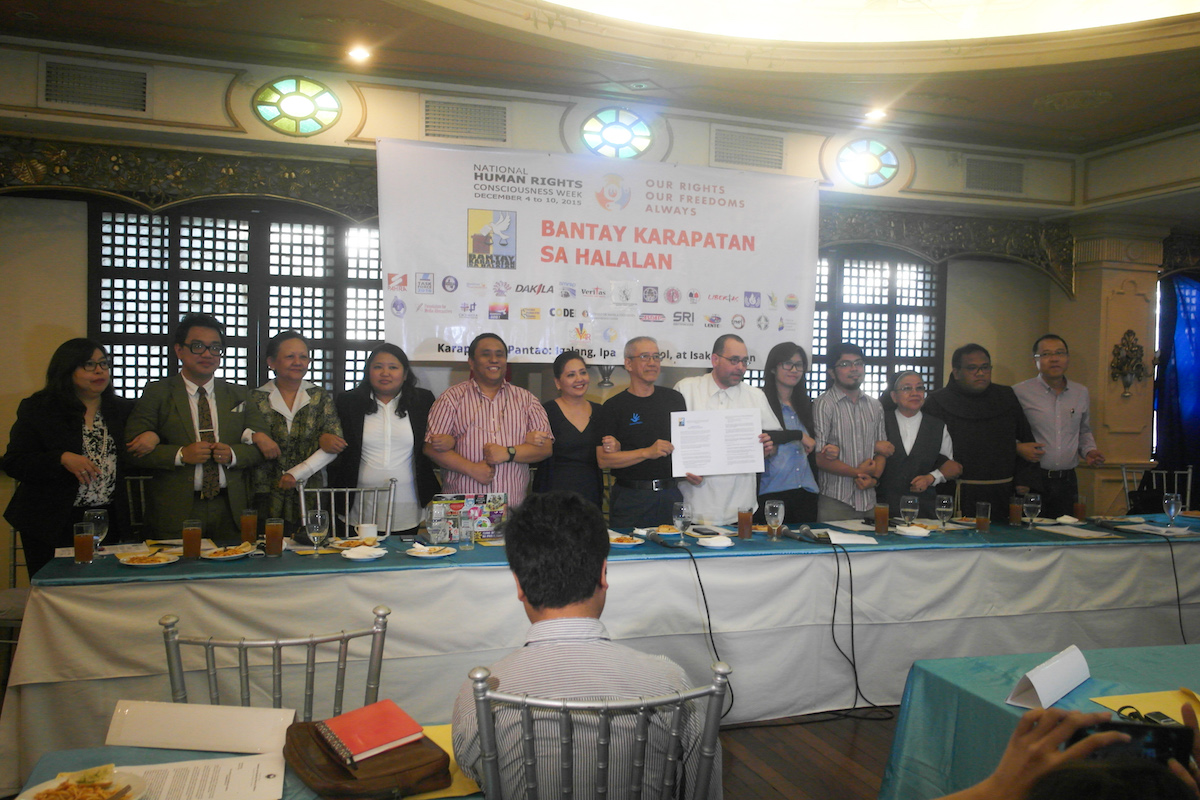By MARIA FEONA IMPERIAL
A newly formed multi-sectoral election watchdog has vowed to monitor the level of inclusion of persons with disabilities (PWDs) not only on polling day itself but also during the government’s preparations for the 2016 elections.
Ensuring the accessibility of polling places and holding PWD-sensitivity trainings are part of the agenda of Bantay Karapatan sa Halalan, a campaign by civil society organizations and the Commission of Human Rights (CHR).
Launched on Dec 10, International Human Rights Day, the 26-member coalition aims to gather reported human rights violations in next year’s elections, but not limited to election-related violence.

“When we talk of human rights, we think only of election-related violence,” said lawyer Takahiro Kenji Aman of the Ateneo Human Rights Center and the Legal Network for Truthful Elections (LENTE).
The measure of genuine and democratic elections, however, does not depend only on its fairness and order, which can be gauged only after the polls, he said.
Electoral participation must also be considered as it is mentioned in the International Covenant on Civil and Political Rights, which forms the backbone of our human rights laws, he added.
“We are too preoccupied with counting. When we’re able to ensure that the votes are counted correctly, we already call it a successful election,” Aman said in mixed English and Filipino.
Prior to elections, transparency, accountability and inclusiveness must be ensured, he pointed out, adding that growing number of registered PWD voters is a sign that the electoral process is becoming more inclusive.
Meanwhile, lawyer Rona Ann Caritos, also from LENTE, said beyond registration, electoral reforms must also be made to ensure the full participation of PWDs in the polls.
She urged the PWD sector to report instances when the kind of assistance specified in the registration forms are not given to them come election day.
Braille ballots and sign language interpreters are part of the frontline services of the Commission on Elections (Comelec), she said.
For Caritos, the accessibility of voting centers is still the biggest issue faced by the sector.
Under Section 29 of Republic Act No. 7277 or the Magna Carta for PWDs, polling places should be made accessible to PWDs during national or local elections.
Earlier, Comelec announced its plans of holding the elections in malls for the benefit of PWDs and senior citizens. (See Voting precincts with huge PWD populations may be moved to malls)
In November, Comelec chair Andres Bautista said this is due to the lack of accessible amenities during elections for vulnerable groups, such as PWDs. (See PWDs to Comelec: Inform us early about mall voting)
“In case there won’t be enough accessible polling places (APPs) in the Philippines, the campaign will focus on the accessibility of classrooms in public schools,” Caritos said.
She added that in case the mall voting pushes through, malls should also be subjected to accessibility audits.
In provinces where there will be no mall voting, Caritos said the coalition will assist in checking the accessibility of schools through Task Force 2016, the biggest network of electoral reform advocates in the country.
Comelec Commissioner Luie Tito Guia said the office is planning to conduct accessibility audits of public schools that will be used as polling places.
The audit will be done across the country, in coordination with the United Architects of the Philippines, Department of Public Works and Highways, Department of Education and the Department of Interior and Local Government.
“We are already identifying schools to be prioritized. The idea is maximum impact,” Guia said.
It is difficult to cover all schools in the country, he said, but the Comelec has a list of schools that have higher floors, and those that are not accessible.
The poll official said mall voting will surely push through in some areas. The question is how extensive it should be, he added.
Other logistical needs, such as the number of sign language interpreters needed, are still being finalized, Guia said. “Once we’re sufficiently informed of those data, then we can plan accordingly.”
For people with visual disabilities, Guia said the voting machines will also have a listening device. “What we can expect right now is we have data on the number of specific disabilities, which is crucial to determine the needed assistive devices.”
Meanwhile, the coalition also urged PWDs to monitor accessibility issues on their own, and report these concerns to them.
“Part of the progress of our advocacy is for PWDs to learn to stand up on their own,” Caritos said.
